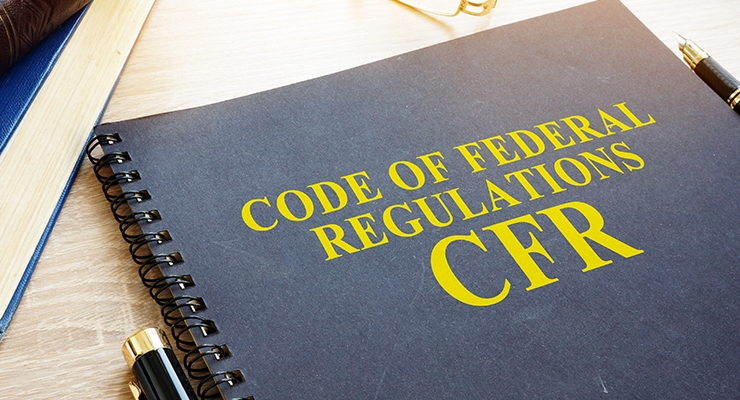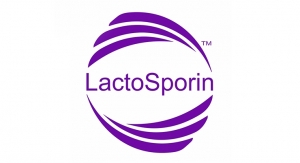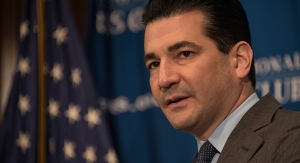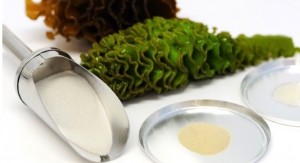By Todd Harrison, Venable06.03.19
As I write this article, there is much buzz within the industry regarding whether it is time for “DSHEA 2.0.” I have been a proponent of updating the Dietary Supplement Health and Education Act (DSHEA) for some time, especially when it comes to marketing claims because of a constant assault by Plaintiff Class Action lawyers.
It appears to me that courts have failed to give the proper deference that DSHEA was attempting to address by permitting unjustified lawsuits on structure/function claims. The courts seem to forget that in passing DSHEA, Congress explicitly found that “the Federal Government should not impose unreasonable regulatory barriers limiting or slowing the flow of safe products and accurate information to consumers.”1
Thus, Congress sought to offer consumers greater access to a wider variety of affordable and beneficial dietary supplement products; and also open the market to companies other than large pharmaceutical firms, which until that point were the only entities with resources to conduct human clinical trials on their products.
The constant lawsuits by Plaintiff attorneys demonstrates exactly the harms DSHEA was intended to prevent: the attempt to impose hurdles upon small companies that would otherwise provide consumers access to beneficial and affordable health products, and information about them.2 To this end, Congress, some courts, the FTC, and the FDA have made clear that evidence other than a randomized clinical trial (RCT) can be considered in substantiating dietary supplement claims.3
Scientific Standards
Clinical trials are not always necessary, and even animal and in vitro studies can and should be considered.4 Accordingly, supplement companies follow the law, and FTC and FDA guidance, by relying on many different modes of research to substantiate claims. Yet, some Plaintiff attorneys ignore the purpose behind DSHEA and the fact that double-blind placebo studies are not necessarily required to support product claims.
Plaintiff attorneys regularly attempt to impose a higher substantiation standard for dietary supplements that is irreconcilable with the statute and agency guidance. Fortunately, some courts are beginning to understand what is required to support product claims and have universally rejected the attempt to raise this standard. For example, in U.S. v. Bayer Corp., the FTC attempted to require that Bayer’s dietary supplement claims be supported by RCTs. The district court denied the government’s motion, holding that the “[FTC] Guidance specifically refutes the [substantiation] standard the Government is seeking to impose.”5 Based on the statements in the guidance, the court concluded that “competent and reliable scientific evidence does not require drug-level clinical trials.”6
To that end, the substantiation requirement for dietary supplements is that they must be “truthful and not misleading.”7 Notably, the law does not require the type of human clinical research that is required for drugs, and Congress recognized in DSHEA that the traditional RCT model is not appropriate or necessary because “dietary supplements are safe within a broad range of intake, and safety problems with the supplements are relatively rare.”8
Congress further recognized that clinical trials may not be feasible for dietary supplements, and the health benefits of dietary supplements are incredibly wide ranging and not always capable of being evaluated by specific endpoints through randomized, double-blind clinical studies. Accordingly, by declining to require RCTs to substantiate dietary supplement claims, Congress limited barriers to the supplement industry’s ability to make truthful and scientifically valid claims about its products. As such, nothing—no law, no regulation, no agency-authored industry guidance, no legislative history, and no court holding—requires randomized clinical trials on the final product for dietary supplements, and there is “no fixed formula for the number or type of studies required.”9
Competent & Reliable
Thus, FTC guidance makes clear that RCTs are not necessary to support health claims for dietary supplements, and FTC guidance explicitly distinguishes between RCTs—which are not required—and the appropriate standard for health claims for dietary supplements: “competent and reliable scientific evidence.”10
“Competent and reliable scientific evidence” (referred to herein as CRSE) is defined as “tests, analyses, research, studies, or other evidence based on the expertise of professionals in the relevant area, that have been conducted and evaluated in an objective manner by persons qualified to do so, using procedures generally accepted in the profession to yield accurate and reliable results.”11
The CRSE standard mandates an assessment of the relevant scientific information as a whole to evaluate whether the claimed benefits can be achieved. By design, the standard covers many different data points that cannot simply be ignored because they are not RCTs. To be competent and reliable, the science does not need to appear in the form of one study, or any study.
Rather, inferences and correlations may be drawn among different studies.12 Further, courts mandate an analysis of the opinions of qualified experts in the relevant field when determining whether claims are substantiated.13
Indeed, the only requirement is that the evidence must be viewed in its totality and not in isolation to the other pieces of the puzzle. For sure, the standard allows an advertiser to make health-related claims based upon testing of the product’s ingredients if the claims are connected to the studies upon which it relies.14 For example, in Bayer, the court held that the company possessed competent and reliable scientific evidence to make claims for its probiotic product, even though Bayer relied upon studies concerning the product’s individual ingredients, three active bacteria strands.15 There, the court found that studies for each of the individual bacteria strains satisfied the “competent and reliable scientific evidence” standard to substantiate claims that Bayer’s complete probiotic product could “promote overall digestive health” and “help defend against occasional constipation, diarrhea, gas and bloating.”
The Garden of Life case similarly permitted health claims on a final product, where substantiation was based upon ingredient studies.16 In sum, both agency guidance and court decisions make clear that whether the CRSE standard has been met looks to the totality of the surrounding science, and requires analysis by qualified experts in the relevant field.17
Improving the System
While the standard is quite clear, the issue is that experts may disagree on what the totality of the scientific evidence suggests. Thus, there is always an incentive for Plaintiff attorneys to send demand letters and file lawsuits in the hope of extracting some sort of settlement out of the marketer.
To be sure, there are bad actors in this industry who make claims that have no reasonable basis. The problem is that many of the lawsuits are brought against companies making legitimate structure/function claims. Part of the issue is there is no government preapproval for claims that would allow defendants to argue preemption.
While I am not a proponent of all claims being pre-approved, I am in favor of a system that encourages companies to conduct clinical studies on their finished products and submitting those studies to FDA to receive clearance to make certain claims for the products. In return, companies that submit claims to FDA for clearance should be permitted to make not only structure/function claims that are supported by the clinical study and the totality of evidence around the ingredients, but also be allowed to make claims that are consistent with OTC drug indications.
More importantly, with such a system, all claims cleared by FDA would be considered preempted from being challenged by any other regulatory agency or private party. The program could be funded through a sliding scale of reasonable user fees based on the size of the company. I would not stop there, however; we should also have a monograph system available, similar to what we have with OTC drugs, in which claims for ingredients are developed and permitted without clinical trials on the finished product. However, those claims would be limited to structure/function claims in order to encourage actual studies on finished products. I have proposed this system many times over the years, but with the constant onslaught of frivolous lawsuits it is time to do something to eliminate this risk.
We can talk about DSHEA 2.0, but the fact is that some areas simply require FDA to enforce the law as written. Claims are the bread and butter of this industry and the system is broken in my opinion; and it’s in need of an update.
References
Todd Harrison
Venable
Todd Harrison is partner with Venable, which is located in Washington, D.C. He advises food and drug companies on a variety of FDA and FTC matters, with an emphasis on dietary supplement, functional food, biotech, legislative, adulteration, labeling and advertising issues. He can be reached at 575 7th St. NW, Washington, D.C. 20004, Tel: 202-344-4724; E-mail: taharrison@venable.com.
It appears to me that courts have failed to give the proper deference that DSHEA was attempting to address by permitting unjustified lawsuits on structure/function claims. The courts seem to forget that in passing DSHEA, Congress explicitly found that “the Federal Government should not impose unreasonable regulatory barriers limiting or slowing the flow of safe products and accurate information to consumers.”1
Thus, Congress sought to offer consumers greater access to a wider variety of affordable and beneficial dietary supplement products; and also open the market to companies other than large pharmaceutical firms, which until that point were the only entities with resources to conduct human clinical trials on their products.
The constant lawsuits by Plaintiff attorneys demonstrates exactly the harms DSHEA was intended to prevent: the attempt to impose hurdles upon small companies that would otherwise provide consumers access to beneficial and affordable health products, and information about them.2 To this end, Congress, some courts, the FTC, and the FDA have made clear that evidence other than a randomized clinical trial (RCT) can be considered in substantiating dietary supplement claims.3
Scientific Standards
Clinical trials are not always necessary, and even animal and in vitro studies can and should be considered.4 Accordingly, supplement companies follow the law, and FTC and FDA guidance, by relying on many different modes of research to substantiate claims. Yet, some Plaintiff attorneys ignore the purpose behind DSHEA and the fact that double-blind placebo studies are not necessarily required to support product claims.
Plaintiff attorneys regularly attempt to impose a higher substantiation standard for dietary supplements that is irreconcilable with the statute and agency guidance. Fortunately, some courts are beginning to understand what is required to support product claims and have universally rejected the attempt to raise this standard. For example, in U.S. v. Bayer Corp., the FTC attempted to require that Bayer’s dietary supplement claims be supported by RCTs. The district court denied the government’s motion, holding that the “[FTC] Guidance specifically refutes the [substantiation] standard the Government is seeking to impose.”5 Based on the statements in the guidance, the court concluded that “competent and reliable scientific evidence does not require drug-level clinical trials.”6
To that end, the substantiation requirement for dietary supplements is that they must be “truthful and not misleading.”7 Notably, the law does not require the type of human clinical research that is required for drugs, and Congress recognized in DSHEA that the traditional RCT model is not appropriate or necessary because “dietary supplements are safe within a broad range of intake, and safety problems with the supplements are relatively rare.”8
Congress further recognized that clinical trials may not be feasible for dietary supplements, and the health benefits of dietary supplements are incredibly wide ranging and not always capable of being evaluated by specific endpoints through randomized, double-blind clinical studies. Accordingly, by declining to require RCTs to substantiate dietary supplement claims, Congress limited barriers to the supplement industry’s ability to make truthful and scientifically valid claims about its products. As such, nothing—no law, no regulation, no agency-authored industry guidance, no legislative history, and no court holding—requires randomized clinical trials on the final product for dietary supplements, and there is “no fixed formula for the number or type of studies required.”9
Competent & Reliable
Thus, FTC guidance makes clear that RCTs are not necessary to support health claims for dietary supplements, and FTC guidance explicitly distinguishes between RCTs—which are not required—and the appropriate standard for health claims for dietary supplements: “competent and reliable scientific evidence.”10
“Competent and reliable scientific evidence” (referred to herein as CRSE) is defined as “tests, analyses, research, studies, or other evidence based on the expertise of professionals in the relevant area, that have been conducted and evaluated in an objective manner by persons qualified to do so, using procedures generally accepted in the profession to yield accurate and reliable results.”11
The CRSE standard mandates an assessment of the relevant scientific information as a whole to evaluate whether the claimed benefits can be achieved. By design, the standard covers many different data points that cannot simply be ignored because they are not RCTs. To be competent and reliable, the science does not need to appear in the form of one study, or any study.
Rather, inferences and correlations may be drawn among different studies.12 Further, courts mandate an analysis of the opinions of qualified experts in the relevant field when determining whether claims are substantiated.13
Indeed, the only requirement is that the evidence must be viewed in its totality and not in isolation to the other pieces of the puzzle. For sure, the standard allows an advertiser to make health-related claims based upon testing of the product’s ingredients if the claims are connected to the studies upon which it relies.14 For example, in Bayer, the court held that the company possessed competent and reliable scientific evidence to make claims for its probiotic product, even though Bayer relied upon studies concerning the product’s individual ingredients, three active bacteria strands.15 There, the court found that studies for each of the individual bacteria strains satisfied the “competent and reliable scientific evidence” standard to substantiate claims that Bayer’s complete probiotic product could “promote overall digestive health” and “help defend against occasional constipation, diarrhea, gas and bloating.”
The Garden of Life case similarly permitted health claims on a final product, where substantiation was based upon ingredient studies.16 In sum, both agency guidance and court decisions make clear that whether the CRSE standard has been met looks to the totality of the surrounding science, and requires analysis by qualified experts in the relevant field.17
Improving the System
While the standard is quite clear, the issue is that experts may disagree on what the totality of the scientific evidence suggests. Thus, there is always an incentive for Plaintiff attorneys to send demand letters and file lawsuits in the hope of extracting some sort of settlement out of the marketer.
To be sure, there are bad actors in this industry who make claims that have no reasonable basis. The problem is that many of the lawsuits are brought against companies making legitimate structure/function claims. Part of the issue is there is no government preapproval for claims that would allow defendants to argue preemption.
While I am not a proponent of all claims being pre-approved, I am in favor of a system that encourages companies to conduct clinical studies on their finished products and submitting those studies to FDA to receive clearance to make certain claims for the products. In return, companies that submit claims to FDA for clearance should be permitted to make not only structure/function claims that are supported by the clinical study and the totality of evidence around the ingredients, but also be allowed to make claims that are consistent with OTC drug indications.
More importantly, with such a system, all claims cleared by FDA would be considered preempted from being challenged by any other regulatory agency or private party. The program could be funded through a sliding scale of reasonable user fees based on the size of the company. I would not stop there, however; we should also have a monograph system available, similar to what we have with OTC drugs, in which claims for ingredients are developed and permitted without clinical trials on the finished product. However, those claims would be limited to structure/function claims in order to encourage actual studies on finished products. I have proposed this system many times over the years, but with the constant onslaught of frivolous lawsuits it is time to do something to eliminate this risk.
We can talk about DSHEA 2.0, but the fact is that some areas simply require FDA to enforce the law as written. Claims are the bread and butter of this industry and the system is broken in my opinion; and it’s in need of an update.
References
- P.L. 103-417, § 2(13), Oct. 25, 1994, 108 Stat. 4334.
- See FTC Guidance.
- See Dietary Supplement Health & Education Act of 1994 (“DSHEA”), Pub. L. No. 103-417, 108 Stat. 4325; FTC, Dietary Supplements: An Advertising Guide for Industry (issued Nov. 1998), (“FTC Guidance”).
- FTC Guidance at 10.
- No. 07-cv-01, 2015 WL 5822595 (D.N.J. Sept. 24, 2015), at *14.
- Id. See also FTC v. Garden of Life, 845 F. Supp. 2d 1328, 1334-35 (S.D. Fla. 2012), aff’d in part, vacated in part, 516 F. App’x 852 (11th Cir. 2013) (rejecting FTC’s RCT standard for dietary supplements); see also Basic Research, LLC v. FTC, No. 2:09-cv-0779, 2014 WL 12596497 (D. Utah Nov. 25, 2014) (same).
- Id. § 343(r)(6)(B).
- Pub. L. No. 103- 417, § 2(14), 108 Stat. at 4326.3.
- Id. at 8-9.
- See, e.g., FTC Guidance at 3; FDA, Guidance for Industry: Substantiation for Dietary Supplement Claims Made Under Section 403(r)(6) of the Federal Food, Drug, and Cosmetic Act (Dec. 2008), (“FDA Guidance”) ( “there is no pre-established formula as to how many or what type of studies are needed to substantiate a claim” and recognizes that randomized, double-blind, clinical trials “may not always be possible, practical, or ethical.”).
- FTC Guidance at 9. See also FDA, Guidance for Industry Substantiation for Dietary Supplement Claims Made Under Section 403(r) (6) of the Federal Food, Drug, and Cosmetic Act
- Id.
- U.S. v. Bayer, 2015 WL 5822595, at *4; Garden of Life, Inc., 845 F. Supp. 2d at 1337-38 (S.D. Fla. 2012); Basic Research, LLC v. FTC, No. 2:09-cv-0779, 2014 WL 12596497, at *5 (D. Utah Nov. 25, 2014).
- U.S. v. Bayer Corp., 2015 WL 5822595, at *4; Basic Research, LLC v. F.T.C., 2014 WL 12596497, at *5.
- U.S. v. Bayer Corp., No. 07-cv-01, 2015 WL 5822595, at *4 (D.N.J. Sept. 24, 2015).
- FTC. v. Garden of Life, Inc., 845 F. Supp. 2d at 1337-38 (S.D. Fla. 2012).
- U.S. v. Bayer Corp., 2015 WL 5822595, at *4; Garden of Life, 845 F. Supp. 2d 1328, 1337-38; Basic Research, LLC v. F.T.C., 2014 WL 12596497, at *5.
Todd Harrison
Venable
Todd Harrison is partner with Venable, which is located in Washington, D.C. He advises food and drug companies on a variety of FDA and FTC matters, with an emphasis on dietary supplement, functional food, biotech, legislative, adulteration, labeling and advertising issues. He can be reached at 575 7th St. NW, Washington, D.C. 20004, Tel: 202-344-4724; E-mail: taharrison@venable.com.



























